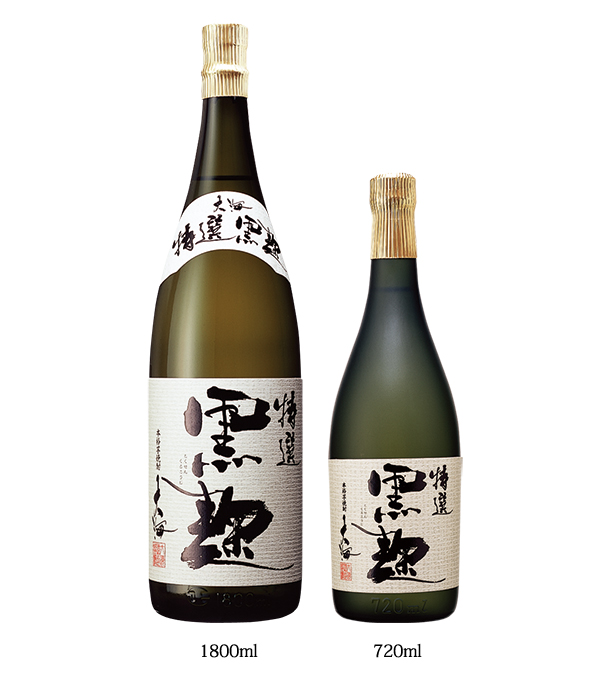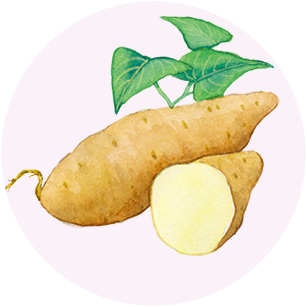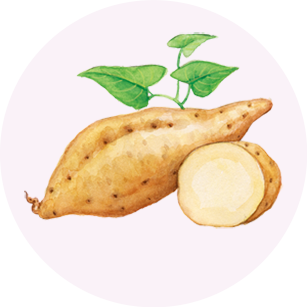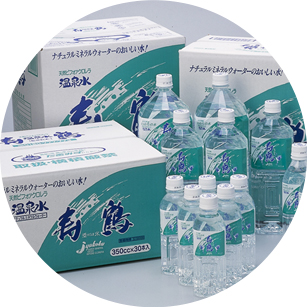Product Information
Sweet potato shōchū (standard)
Taikai Tokusen Kuro-Kōji (Taikai Special Black Kōji)

A joy-white and kogane-sengan sweet potato shōchū. It uses a special gold type black kôji to create a rich and smooth taste. It was diluted with local Jukaku hot spring water. Ideal on the rocks or mixed with hot water.
- Classification
- Authentic shōchū
- Alcohol volume
- 25%
- Ingredients
- Sweet potato (joy-white/kogane-sengan), malted rice (produced in Japan)
- Kōji
- Black kōji (G type)
- Distillation method
- Atmosphere distillation
- Bottle
- 1800ml/900ml
Aroma/Taste scale

For the best drinking experience
Delicious at about 10°C on the rocks or mixed with lukewarm water.
Drinking temperature

Sweet potato
Joy-white
A variety of sweet potato developed in 1994 specifically for shōchū. It is rich in starch but lacks saccharification enzymes meaning that the starch will not saccharify when heated, in other words, it will not become sweet. Its skin and insides are white and unsuitable as food but perfect for shōchū brewing.
Kogane-sengan
The kogane-sengan sweet potato was created in 1966 and became shōchū’s main ingredient. These are versatile yellowish-white sweet potatoes with a great taste and high starch content widely used for many different purposes other than making shōchū. In Kagoshima Prefecture, almost half of the cultivated sweet potatoes are kogane-sengan.
Water used
Jukaku hot spring water
Sakurajima is one of Japan’s most active volcanoes.Looking up to it, is the city of Tarumizu where jukaku water gushes forth from 800m underground. It contains 8.89ppb (parts per billion) of water-soluble germanium which is a hundred times more than the average.
Water-soluble germanium can also be found in plants such as ginseng, reishi mushrooms, polypores, or garlic and has been used for the longest time to maintain health. Natural alkaline ionized water, jukaku, is also rich in natural minerals and is known to have excellent penetrating and extracting power due to its unusually small molecular structure.

LinkJukaku Web site


































